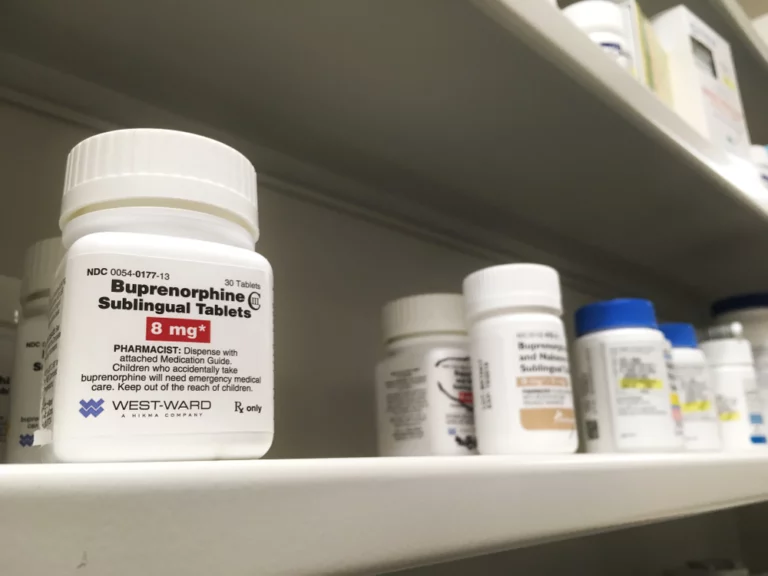Am I Dating a Meth Addict? Signs To Look For
If you are suspicious that your partner may be a meth addict, this article is for you. Methylamphetamine, usually called “meth” for short, is a highly destructive substance that has earned itself a bad name. Crystal meth is notorious for causing serious and sometimes permanent physical and mental harm to those who use it.
Usually, when people think of meth and its users, they focus on the damage it is doing to the individual consuming it. Yet, its effects do not stop there; people who are related to or close to the user are also likely to suffer. In this piece, we will explain the struggles of those in an interpersonal relationship with a meth user, be it romantic or otherwise.
Continue reading to learn more about meth addiction, the many dangers of abusing this drug, signs your partner is a meth addict, and much more.
Meth Addiction Explained
Methamphetamine, or meth, is a very strong stimulant to the central nervous system (CNS) and is very addictive. As per the National Survey on Drug Use and Health, in 2021, 101,000 people aged 12 or above began using methamphetamine and 1.6 million individuals aged 12 or above had a methamphetamine addiction.

There are a variety of forms of consumption. Those who smoke meth experience an intense, enjoyable feeling which only lasts a few minutes, leading people to use more meth to try and maintain the high. Those who inject meth feel the effects quickly, as do those who snort it, although the euphoria is much slower and without the strong initial rush.
Meth is highly addictive because it increases the activity of multiple neurotransmitters, such as dopamine, which is a vital brain chemical for motivation and rewards. The quick surge of dopamine in the brain’s reward centers makes people want to take the drug more often. In addition, the intense euphoria that smokers and injectors feel from the drug fades quickly, making them resort to a binge-and-crash pattern, where they take more of the drug in order to try to maintain the high. In extreme cases, it can lead to people not sleeping or eating for days while they continue to take meth.
Dangers of Meth Addiction
Unmanaged methamphetamine addiction can lead to severe psychological consequences, such as fear, confusion, lack of sleep, and aggressive tendencies. The National Institute on Drug Abuse states that affected individuals may even develop paranoia, hallucinations, and illusions which could linger for months or even years after quitting (known as post-acute withdrawal syndrome). Thus, it is highly recommended to stop using as soon as possible. In addition, the physical effects of methamphetamine use are devastating, including loss of weight, tooth decay (known as “meth mouth”), and skin irritations.
Such dental issues may be caused by inadequate nutrition, poor dental hygiene, and teeth grinding. The scratches and picking scars on the skin are a result of the delusional side effects mentioned before. Physically, those who are addicted may be more likely to suffer from osteoporosis, dental decay, cardiac issues, respiratory harm, and/or organ failure.
Signs Your Partner is a Meth Addict
If a person has a dependency on crystal meth, they can suffer from physical signs that may have life-long implications and cause permanent alterations to their body and mind. The visible signs of meth addiction are indicators of more serious, long-term damage the drug does to the heart, lungs, brain, liver, kidneys, and muscles. If you suspect someone you know has a crystal meth addiction, pay attention to these physical signs:
- Dilated pupils
- Facial Twitching
- Excessive Sweating
- High Body Temperature
- Twitchy Body Movements
- Decreased Appetite
- Insomnia
- Weight Loss
- Tooth Decay
- Gum disease
- Picking at skin
- Facial sores and scars
- Rapid speech
Mental and behavioral signs such as confusion, mood swings, and violent behavior can also be associated with crystal meth addiction. Long-term use of this drug can further decrease the ability to think clearly or make rational decisions, resulting in impaired judgment. These changes in the brain structure and function can have long-lasting effects, and can even become permanent if not treated properly. It is important to be aware of the mental and behavioral signs associated with crystal meth use and addiction and seek help if necessary.

A person with a meth problem can become distant from their loved ones very quickly when they start to use. Aside from being a source of anxiety for their family and friends, their schedule can become very erratic. It’s not unusual for them to suddenly disappear for days or weeks at a time. As they continue to use, sleep no longer becomes a priority, so it’s hard to predict how long a binge will last. The more lacking in sleep they become, the greater the chance of them experiencing delusions, hallucinations, and paranoid behavior. They may stay up for days on meth and see things that aren’t there or have psychotic episodes.
What You Should Do
When someone is in a relationship with a person who is addicted to drugs or alcohol, it is not an unfamiliar situation for the sober partner to overlook their own needs to cater to their addicted partner. If you are currently in such a situation, where your partner does not have any plan for recovery or rehab, it is essential to ask yourself certain questions. To start with, reflect on whether you are being an enabler. That is, are you lying for your partner, giving them money, so devoted to their issues that you don’t have any time for anyone else, or are you disregarding your own well-being and self-care?
Secondly, if you find yourself thinking or saying that you can’t leave your partner in order to ‘save’ them, or that they won’t be able to cope if you’re not there to clean up all the mess, then you need to come to terms with the fact that it’s not healthy for either of you if your partner’s addiction is causing you any distress, illness or making it difficult for you to study, work or focus. It’s natural to want to assist your partner, but if their addiction is taking its toll on your life, then you have to contemplate whether it’s the best option for the both of you to stay together.
It is essential to gain as much knowledge as possible about addiction, crystal meth, and the available support to help someone close to you stop using and remain abstinent. By researching this condition, you can join the discussion with all the facts and abstain from being judgmental, making a diagnosis, or placing blame. Even though it might be hard, attempt to talk about it when they are not under the influence or in a good state of mind. Make sure to express your worries and anxieties in a manner that shows you care for them.
When you are talking to someone dealing with an addiction, it is important to be aware that they will be the one to decide if they are ready to get help with a treatment program. It is essential to be a good listener. Even though you should not encourage their addiction or agree with their choice to not seek help, you should avoid applying pressure or setting deadlines, as this may only cause them to withdraw from you and further indulge in their addiction. It will not be beneficial to point fingers at anyone (or yourself) and it is not helpful to harshly judge their behavior or make them feel worse.

Meth Addiction Treatment in Louisville, KY
At Louisville Recovery Center, we understand that addiction to meth can be a tremendous burden on an individual and those around them. We are devoted to providing the necessary resources and assistance to help anyone and everyone in need. Our team of qualified professionals is here to provide support throughout the recovery process and ensure that their objectives are met and sustained over the long run.
We urge everyone struggling with meth addiction or any mental health issue to contact us, regardless of if this is your first time looking for help or you are having difficulty with relapse. Louisville Recovery Center is here to help. Call us today.







